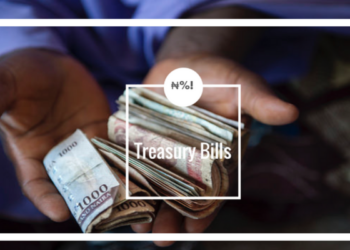Nigeria attracted just $67.9 million in Foreign Portfolio Investment (FPI) inflow for the month of April 2020, the lowest inflow recorded this year. This is contained in the latest capital importation data obtained from the Central Bank of Nigeria (CBN).
A cursory look at the Central Bank data shows that FPI sharply reversed from $2.30 billion at the beginning of the year (January) to just $67.9 million inflow in April 2020. Nigeria like most emerging markets relies heavily on foreign portfolio investments to shore up its external reserves and manage its exchange rate position.
Nigeria shut down its economy in the whole of April as part of its measures to contain the spread of the COVID-19 pandemic.
READ MORE: UPDATED: Inflation rate jumps to 12.40%, highest in over 2 years
FPI and FDI hit 2016 recession low
The outbreak of the COVID-19 pandemic has affected the global economy with emerging markets like Nigeria feeling the full brunt from a fiscal and monetary perspective.
With the pandemic projected to spread recession across major countries including G20 nations, investors are wary of pumping money into poorer countries like Nigeria. This is despite trillions of dollars in stimulus packages injected by the likes of Japan, the US, Europe, and Canada. Foreign investor apathy is also due to the global lockdown which is still in full force in many sub-Saharan countries like Nigeria.
In total, Nigeria attracted only $316.8 million capital inflow in April, a 113.5% drop representing a significant decline when compared to the $2.30 billion capital inflow received in January 2020. Total capital importation was $2.4 billion and $615 million in February and March respectively. The majority of the inflows recorded in January and February flowed into Money Market Instruments.
The breakdown of capital inflow shows that the main components of capital inflow (FPI and Foreign Direct Investment) plunged significantly.
READ MORE: Nigeria receives $17.5 billion diaspora remittances in 2019

As at the end of April 2020, Foreign Direct Investment (FDI) received was estimated at $18.5 million, down from $110.9 million received earlier in January 2020. FPI, on the other hand, recorded a 3,297% decline from $2.30 billion in January to $67.9 million inflow in April 2020.
This is the lowest capital inflow received in the Nigerian economy in a single month since the 2016 recession. In 2016 December, Nigeria recorded $76.15 million FPI and $67.9 million in January 2017 respectively.
READ ALSO: Nigeria received $96 billion diaspora remittances inflow in 6-years
According to the recent report released by the World Bank on the Nigerian economy, in the first quarter of 2020, the total FPI flows into Nigeria declined by 54%, and this is due to increased risk aversion in global capital markets.
While FPI and FDI both declined, the Central Bank continues to offer high yield to foreign investors, causing the share of FPI in total capital inflows to rise to over 50 percent in 2019. The shift from FDI to FPI represents an increase in Nigeria’s reliance on “hot money” to finance the Balance of payment, which exacerbates the vulnerability of the current account.
Although, the foreign reserves have improved in recent weeks, averaging $36 billion in June 2020. Meanwhile, a sustained reversal in capital flow may further expose the country’s foreign reserves, a situation which may necessitate another round of exchange rate unification (Naira devaluation).
Economic Reopening still a longshot
In the past weeks, major economies of the world have embarked on gradual easing of lockdown, a move targeted at restarting local trade and initiate the recovery process. However, there are new pushbacks on reopening plans as renewed concern about the possibility of a second wave of the COVID-19 pandemic across the globe remains high.
Nigeria has also faced similar pushbacks on reopening the economy further prolonging a restart of full economic activities. Just recently, the federal government approved a N2.3 trillion stimulus package which they will fund from special accounts and a $3 billion loan from the World Bank. This is in addition to the $3.4 billion already drawn from the IMF. Whilst, these are all geared towards stimulating the economy, the economic devastation from COVID-19 remains a huge concern.

Both the IMF and World Bank have predicted the Nigerian economy to contract by 3.4% and 5.4% respectively in 2020. According to the World Bank, in 2020, the current account is expected to hold steady at about -3.1 percent of GDP in 2020, although imports and exports are both projected to contract considerably.
Perform advanced finasncial calculations on Nairamterics
Also, the World Bank disclosed that Nigeria’s exports are expected to fall by US$40.3 billion, 9% of GDP, because of the drop in global oil prices, and imports are expected to fall by US$50.5 billion, 12% of GDP, due to sluggish demand and disruptions in global supply chains.
Indeed, Nigeria is in a significantly weaker macroeconomic position than it was during the 2015/16 recession, and it has fewer policy instruments to cushion the shocks induced by the pandemic.






















